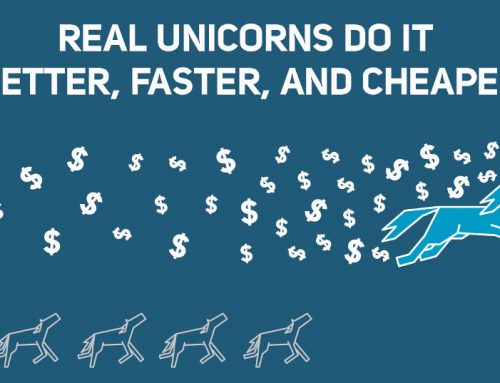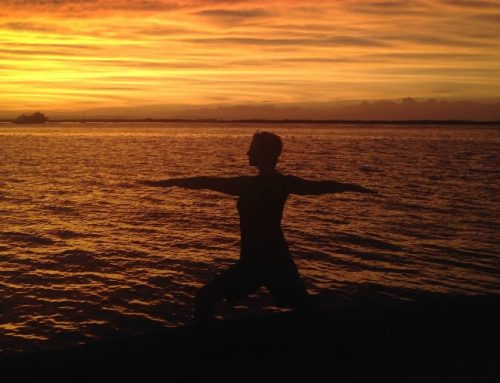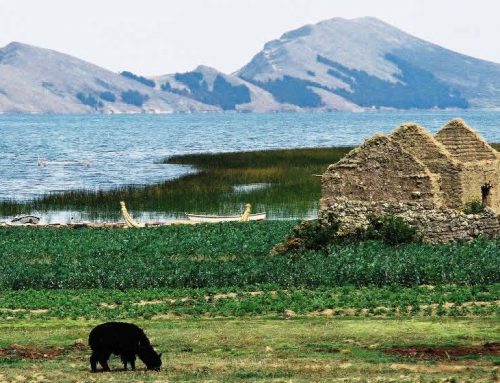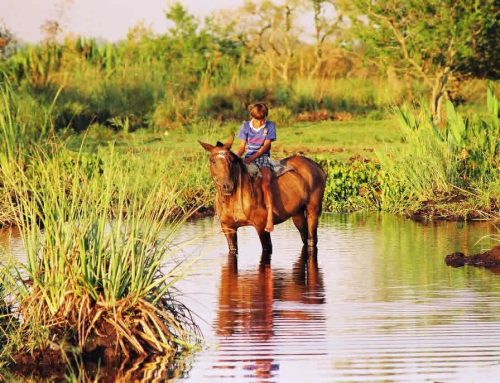In 1982, a film was released that defied conventional cinema. There was no plot, no characters and no dialogue, with only a visual narrative. “Koyaanisqatsi: Life Out of Balance” described a world where nature, humanity and technology are at odds against each other, with no clear winner – only losers. Nearly four decades later, not much has changed. If anything, competition has become fiercer and the stakes higher.
This competition can be translated to our daily lives and lifestyle in general. In a sense, we are microcosms of the greater world. If we are to have a world that balances nature, humanity and technology, we must have a balance within ourselves first. Too much of one thing doesn’t leave enough space and time for everything else. A balanced lifestyle helps promote balance elsewhere in our experience and environment.

Children play Soccer on a Zanzibar Beach near Stone Town, Tanzania
Mind, Body and Soul – A Balanced Lifestyle
There simply aren’t enough hours in the day. We’ve all been there – where we feel like our responsibilities leave little or no time for our interests. In an increasingly complex and uncertain world, we naturally focus on material survival rather than our emotional, physical and spiritual well-being.
Finding a balanced lifestyle that reconciles our material and more abstract obligations requires a conscious effort. The messages we hear and see are about spending or saving the money we work so hard to gather. Seldom are we encouraged to look elsewhere for fulfillment. And, the more we hear something, the more we believe it to be true.
Never has anyone claimed on their deathbed that they wished they had spent more time at work. Despite this, spending time with loved ones and on self-improvement seems to fall by the wayside. Unless we find the time to focus on our mind, body and soul, our lives will be out of balance.

Head in the Sand at Museo Subacuatico de Arte near Isla Mujeres, Mexico
Stuck In A Rut
Not too long ago, we found ourselves in a rut. We were working 12 hours a day at jobs in which we weren’t particularly happy. And, after taking care of Diane’s aging parents as her mother’s Alzheimer’s worsened, our property and our old cat, the day was done. Daily routines were uninspiring, uneventful and uninteresting. We were just going through the motions and the wheels were just spinning.
“Life is like riding a bicycle.
To keep your balance you must keep moving.”
– Albert Einstein
Instead of doing things we enjoyed, we were gaining weight and feeling unfulfilled. Diane’s mom died shortly after our cat, and grief was another rock on the pile that was threatening to crush us. We had to determine what was truly important to us and how we were going to implement these things into a balanced lifestyle. As a result, we came up with three simple steps to help us stay focused.

Hindu Sadhus meditate on the Ganges River at Varanasi, India
Focus On The 3 Ps
Prioritize
First, determine what is important and what brings fulfillment to your life. Think about where you would like to be in 1 year, 5 years and 10 years. Write down everything you think of, and once you have your list, whittle it down to five items or fewer. Things change, so re-evaluate often – what’s important today may not be tomorrow.
Plan
Next, the goal is to make time, not find time, for all the important elements in our lives. Determine what the daily time-wasters are and how they can be replaced with what’s important. Make a commitment to yourself and be patient – change is hard.
Proceed
Finally, follow through on commitments to yourself, and don’t be discouraged when you find yourself deviating from the plan. Try to remain flexible and realistic and when things go off course, head back to step one and take stock. The search for balanced lifestyle is an ongoing journey.

Buddhist Monks spin Prayer Wheels on the Lingkhor Kora in Lhasa, Tibet
Mind, Body and Soul
When we evaluated our priorities, we decided that there were four things that would help us develop a balanced lifestyle. They would also help fulfill the goal of doing something for the mind, body and soul every day. Although doing something for each element every day is ideal, reality often prevents this. It’s okay to skip a day, but we try to do something for each element at least three times a week.
These elements are not mutually exclusive. It is possible to participate in an activity that addresses two or more of them. For example, mountain biking would fall under adventure and health and fitness. Yoga and its meditative properties would cover health and fitness and perspective. And, reading about the plight of native North Americans in the 17th century would be both arts and culture and perspective.

Longboat Race on Nam River near Phichit, Thailand
Adventure
Few things are as adventurous as traveling through a foreign country. Everything is different, and the new things we see spark our interest to learn more about the places we visit. We are outside our comfort zone and are forced to be mindful of everything that is going on around us. It is a sensory experience that demands our full attention, and opens our mind to realities other than our own.
Adventure can also be found on our own doorstep. It can be as simple as going for a hike or participating in a sport that takes your mind of everything else. Fast-paced physical activities require concentration and presence in the moment. They make us focus on here and now. Outdoor activities put us in a setting which helps us connect with the natural world, and disconnect from the ubiquitous distractions of technology.

Lion in South Luangwa National Park, Zambia
Health And Fitness
Engaging in a fast-paced physical activity not only puts us in the moment, but is also good exercise. Most health care and fitness experts recommend at least twenty minutes of cardiovascular exercise, three times a week. Resistance or weight training is also important to maintain muscle tone. A vegan diet is best for the environment, and since we are microcosms of the greater world, it is probably also best for us. But, a vegetarian diet is more realistic for most people. Avoiding meat every other day is a good start.
It isn’t only our physical health on which we should focus – our mental health is equally important. It’s easy to get caught up in, and place undue importance on, the “likes” on our social media feeds. It’s equally easy to turn on the television and be effortlessly entertained by the same stories over and over again. These outlets exist to advertise material consumerism and an unattainable personal image, exactly the things that perpetuate anxiety and depression. Turn them off and read a book, especially before going to bed.

Vendor at a Vegetable Market in Mysore, India
Arts And Culture
There are lots of ways to appreciate the art and culture that surround us. A few minutes visiting a free exhibit at a local museum or gallery can offer a quiet and relaxing diversion in an otherwise busy and noisy day. The history and cultures of our own countries are as worthy of exploring as those halfway around the world. Turn off the computer and television for one night every week or two, and go out and enjoy a concert, theater play, or some other live performance.
We can also take an active role in introducing more arts and culture into our lives. We can learn to speak a new language, play a musical instrument, or try our hand at painting, pottery or some other artistic expression. Who knows, we might even be surprised to find a long hidden talent. Many of us have kept a diary or journal at some point in our lives. Not only can we enjoy reading great literature, but writing is very cathartic and gratifying, and helps organize our thoughts and perspectives.

La Calavera Catrina at Dia de los Muertos in La Paz, Mexico
Perspective
Someone once said that there are more things in this world than are dreamt of in our philosophy – or something like that. It is impossible to have a comprehensive understanding of current affairs and the state of our planet if we limit ourselves to the same information everyday. Reading and watching news reports from sources across the political spectrum and around the world, and speaking with people with opinions different than our own, are good strategies for keeping an open mind.
The best way to learn about what is going on out there is to go out and see the world for ourselves. Nothing provides perspective about the perceived inadequacies and stresses of our lives like going out and seeing how other people live. The vast majority of the world’s population could scarcely imagine, let alone develop the means of, packing up and setting out to see what lies beyond the horizon. When we meet people from different parts of the world, we can’t help but respect other cultures and develop a more empathetic approach to the world around us.

Meet And Discuss With Care in Beijing, China
Life In The Balance
There are several sequels to “Koyaanisqatsi” that all explore the imbalance of our world resulting from the withdrawal of humanity from nature. We must find balance in our own lives before we can address the issues that threaten humanity and our planet. We can’t change the world until we change the world in ourselves. And, we should never stop changing and striving for improvement in all aspects a balanced lifestyle.








Leave A Comment